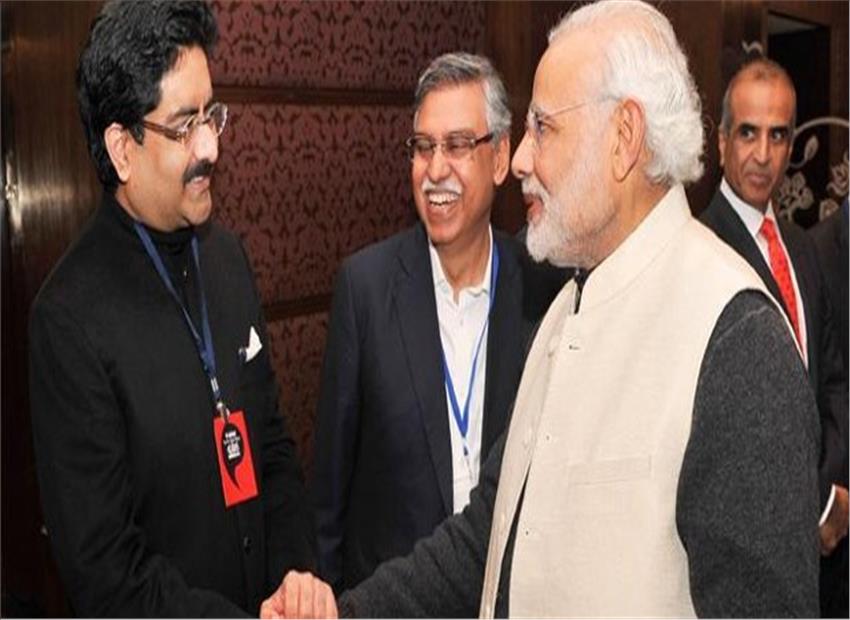Kumar Mangalam Birla, chairman of Aditya Birla Group said in an interview that Insolvency and Bankruptcy Code (IBC) is a deeper reform than GST and note ban (demonetization). “I think we’re seeing improved levels of governance in corporate India and the government. We’re truly integrating with the world economy. I think there’s a definite deep cut that’s happened and IBC is a deep reform…”, Birla said in an interview. The 51-year-old industrialist Kumar Mangalam Birla is a fourth generation member of Birla Family which is one of the earliest business houses of India. The Aditya Birla Group operates in 35 countries with more than 120,000 employees worldwide. His vast experience of doing business in India and around the world and his family background gives him an edge in analyzing any economic reforms. So his appreciation for the IBC code is a great thing for the incumbent government. On the economic growth of the country, Birla said, “we’re expecting the economy to grow at 7-8% in the next few years.”
In our country, everyone talks about economic reforms but just few people knows that what does economic reforms actually mean. Does it mean just opening more and more sectors to FDI and rationalizing corporate tax or it is more structural steps which bring fundamental changes in way it does business in the country? The reforms like GST, IBC, and RERA are the structural reforms which change the way businesses are done and make entry and exit more easy, thus making it easy to operate in the business environment for domestic as well as foreign entities. The Modi government has been focusing on basic things like macroeconomic stability, changing the indirect tax structure to turn the country into a single market, IBC to solve the burgeoning NPA problem and systematic attack on black money through steps like demonetization, Benami property act and crack down on Shell companies. These steps resulted in healthy economic growth which reached 7.7 percent in the last quarter and black money crackdown increased the tax to GDP ratio. The increased tax will allow the government to spend more handsomely on social security schemes like Ayushman Bharat and the country will become a truly welfare state.
Initially, 12 bad loan cases of Non-Performing Assets (NPA) were identified by RBI to be solved under the newly adopted IBC law. Barring one, all the accounts are in various stages of resolution at different benches of the National Company Law Tribunal (NCLT). The percentage of recovery will be different for other banks, some of them are expected to get a better percentage of NPAs back and some will be less fortunate. Under the IBC law, National Company Law Tribunal (NCLT) has approved Tata Steel’s bid to acquire the bankrupt Bhushan steel. This is the second biggest dissolution of stressed assets by NCLT under the newly adopted IBC Code. Anil Agrawal led Vedanta Resources was the first successful bidder under this new law when it took over the ownership of bankrupt Electrosteel Steels for an aggregate amount of Rs 1,805 crore (USD 275.7 million) and additional funds of Rs 3,515 crore (USD 536.9 million) by way of debt. Bhushan Steel and Electrosteel were both among the first twelve companies which were referred by RBI to National Company Law Tribunal for proceedings under Insolvency and Bankruptcy Code, the other being Essar Steel, Alok Industries, Amtek Auto etc.
